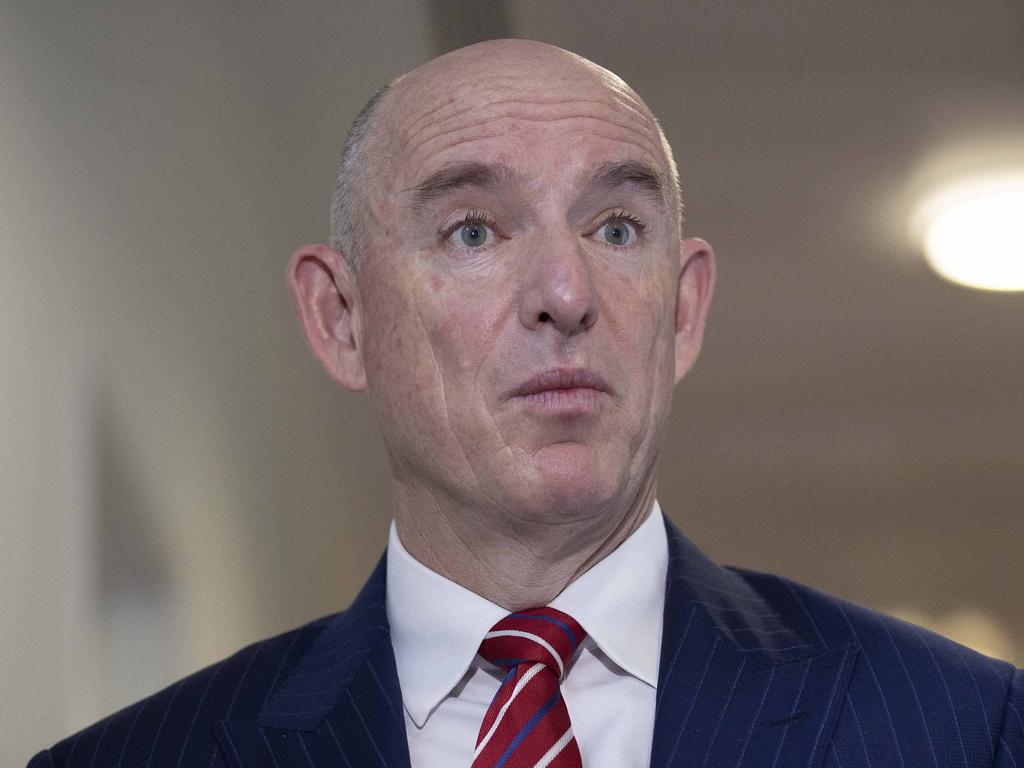Consumers plan to cut back on Christmas shopping, Westpac survey reveals
Four in 10 households plan to cut back on Christmas spending, with more than one in three Australians saying the federal budget worsened their financial outlook.
Four in 10 households plan to cut back on Christmas spending this year, with Westpac’s latest survey also revealing that more than one in three Australians believe last month’s federal budget worsened their financial outlook.
Westpac chief economist Bill Evans said “sentiment continues to plumb historic lows”, as the consumer sentiment index tumbled by 7 per cent to 78 points, leaving households more pessimistic than the depths of the GFC, and only marginally more upbeat than during the worst of the national Covid-19 panic in early 2020.
“Prior to that, we need to go back to the deep recession in the early 1990s to find a weaker read,” Mr Evans said.
But even as the monthly consumer confidence report suggested soaring inflation and surging interest rates were pushing households deeper into despondency, spending data showed Australians’ appetite for shopping remained undimmed in early November – underlining the wide gap between our confidence measures and upbeat actual activity.
It comes as the federal treasury said on Tuesday that it still expected inflation to peak at 7.75 per cent in December, despite the Reserve Bank recently upgrading its forecast peak to 8 per cent over the same period.
Treasury secretary Steven Kennedy warned of a “marked” deterioration in the global outlook since Treasury delivered its pre-election economic and fiscal outlook in April, saying it was “becoming probable that major developed economies will soon experience recessions”.
“It is likely China will grow at its slowest rate in 30 years outside of the pandemic,” he told the senate.
Mortgage holders were even more pessimistic, with the sentiment gauge for this group at 68 points and the lowest in data stretching back to 1996.
The survey was conducted over four days to November 3 and incorporated a badly-received budget which did nothing to immediately ease cost-of-living pressures, official figures showing inflation at a 32-year high of 7.3 per cent and a further RBA rate hike on Melbourne Cup day.
“Consumers would also have been unnerved by forecasts in the government’s October budget showing electricity prices are expected to increase by 56 per cent over the next two years,” Mr Evans said.
As Peter Dutton labelled the October budget “a stinker” and vowed to continue to hound the Albanese government on cost of living issues, Westpac’s survey showed a “historically high” 35 per cent of respondents believed the budget had made their financial prospects worse.
“While that is well short of the 58 per cent recorded following the newly elected Coalition government’s ‘horror’ budget of 2014, it is the second highest since then and well above the 14-year average of 30 per cent,” Mr Evans said.
In his prepared remarks to senate estimates, Dr Kennedy – who was unable to attend Tuesday’s committee hearing – said last month’s budget “returned much of the upgrade in receipts to the bottom line and constrained spending, significantly lowering near-term deficits and debt”.
“There is the potential for further upgrades to near-term receipts reflecting the cautious approach taken to forecasting commodity prices. Should this be the case, it would be prudent to take the same approach,” he said.
“We are fortunate in Australia to begin this journey with a relatively lower level of debt as a proportion of GDP than in many countries. Nevertheless, necessary policy decisions will be difficult in order to best promote the national interest.”
Dr Kennedy also urged the government to bank further likely windfall gains from high commodity prices in the May budget, warning of “more profound” budget pressures beyond the near term that “will likely require a combination of spending restraint and increases in taxes to reduce deficits and lower debt”.
“Electricity and gas prices are expected to directly contribute 0.75 percentage points to inflation in 2022–23, and 1 percentage point in 2023–24,” he said.
But the lengthening laundry list of worries for households are yet to put a dent in the country’s ongoing shopping spree.
New ANZ card spending showed strong spending momentum in early November.
Shopping sprees on cards built on bumper retail spending through the September quarter as Australians ignored higher prices to splurge on fashion and eating out. In a note titled “can’t stop, won’t stop”, ANZ senior economist Adelaide Timbrell said “the early November upward trend in shopping (non-food retailers) is stronger than in 2019, and encouraging ahead of the holiday trading period”.
Ms Timbrell said spending on its cards was growing fastest in Queensland and in Western Australia, “far outpacing” growth in NSW and Victoria.
CBA senior economist Belinda Allen said “we expect consumer spending to slow from here”, as rate rises flow through to household budgets and rising costs bite.
With consumption holding up for now, NAB’s new monthly survey showed businesses enjoying a solid operating environment in October, although waning corporate confidence.
NAB chief economist Alan Oster said “conditions remained strong in October, with demand still very elevated and profitability holding up”.
Additional reporting: Rosie Lewis






To join the conversation, please log in. Don't have an account? Register
Join the conversation, you are commenting as Logout